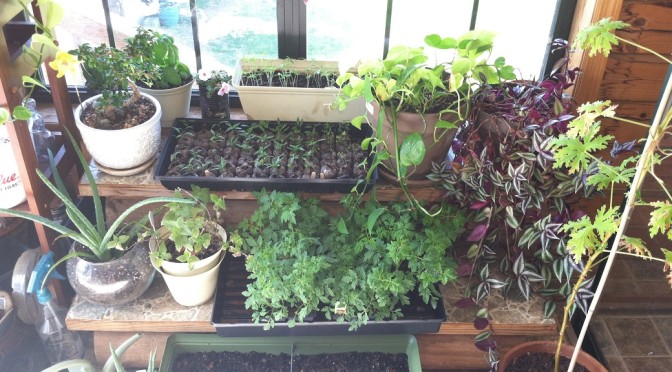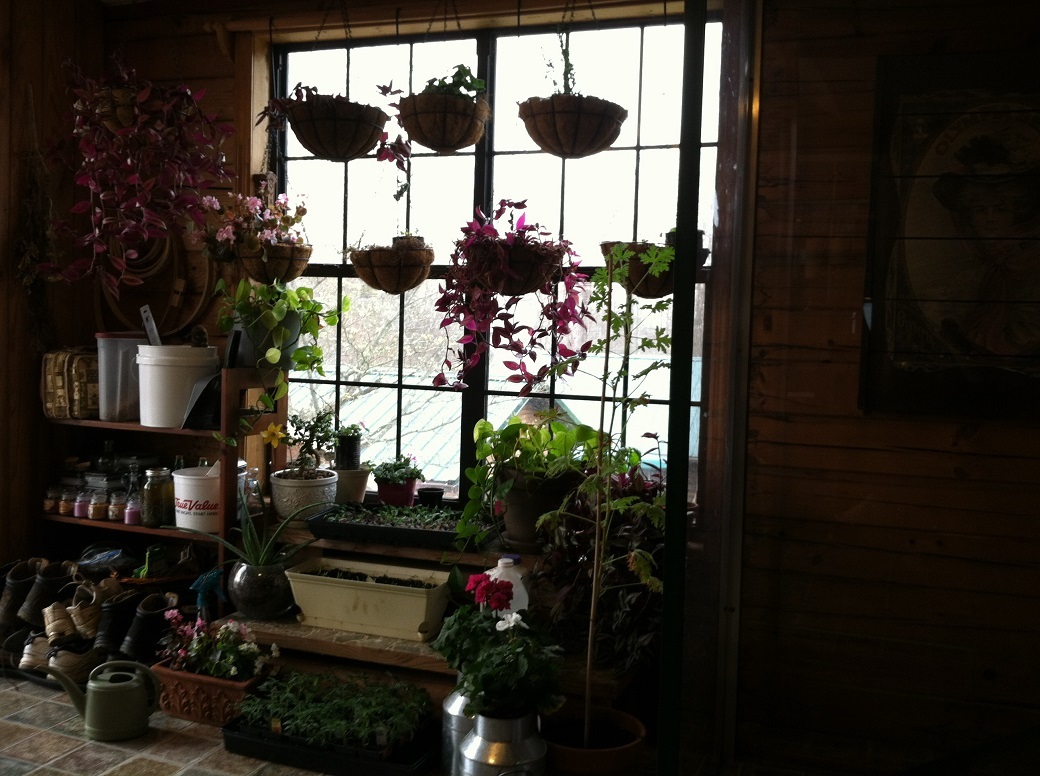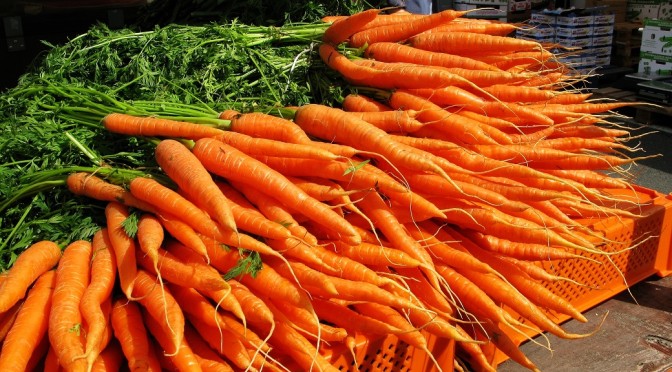From Mrs. Cog's Corner
The idea of producing our own healthy food has never been so appealing, so easy or so smart. Wherever you are, I recommend you begin growing a few things, even if it is on a balcony, a patio or indoors.
Access to fresh, wholesome foods can be precarious and time consuming to source. Often people live in the city or a home with little or no room to garden. Perhaps there are zoning rules or physical constraints preventing a garden in the yard. Maybe some are just not physically able to work the land available. In some places, there is not enough of an outdoor growing season even if the space is available.
Food costs are rising globally. The sky is the limit. In addition, one never knows when geo-political or weather conditions will cause periodic shortages or an interruption of services.
The quality of food is increasingly questionable. Much of our fresh produce might come from genetically modified or hybrid seeds, some of which our bodies recognize as not natural food. Even if it is grown from heirloom quality seeds, the standards to label it "organic" are ever changing and regulated by government agencies with corporate interests front and center.
One potential and fruitful answer to all of the above is indoor gardening. Every place sun shines through can potentially grow something useful. There are even indoor growing systems that require little or no sunlight and range from the inexpensive to the ornate.
What I am learning is one doesn't need to be an expert to dive in and have some success. Now is the time while basic supplies and seeds are available and affordable. From window boxes with microgreens, upside-down tomato plants, sprouts, hydroponics, grow lights and small indoor green houses, there is much territory to explore.
(Paging the Urban Pepper, please pick up the courtesy phone in the lobby.)
Read More:
The benefits to health and wellbeing of having plants and greenery around an office are well documented. This project by Ingameoffice is more than just a few pot plants, though. Its TYJ Office Building refurbishment uses a vertical planting system in which plants can be moved around. http://www.gizmag.com/ingameoffice-modular-vertical-garden-indoor-plants/31580/
Few things are more satisfying than growing your own food. Few things are more frustrating than being a garden lover trapped in a teeny-tiny apartment. What to do? Here are some gardening projects that will work on even the smallest patio or balcony...plus tips for growing citrus indoors if you don't have a balcony at all. http://www.apartmenttherapy.com/gardening-without-a-garden-10-ideas-for-your-patio-or-balcony-renters-solutions-167221
Conservatories and windowsills are good sites for growing vegetables. Put heavy containers on the floor or a firm support. Some vegetable plants, including trailing species, are suitable for growing in hanging baskets fitted with integral drip trays. Mushrooms are straightforward if you have space in a dark cupboard. Some plants such as chicory and rhubarb can be forced to produce their crop earlier than normal. http://www.rd.com/slideshows/9-vegetables-to-grow-indoors/
As it turns out, with pretty minimal effort, anyone can be a gardener. My boyfriend and I are essentially first-timers this season and so far have the beginnings of strawberries peeking out, tomatoes are on their way, the basil's about ready for a big batch of pesto, and once the last frost hits, the peppers, kale, spinach, chard, and mesclun will be on their way, too. All on a tiiiny little terrace (with the help of a little DIY carpentry). http://home.howstuffworks.com/green-living/sixtysixthings-growhome-containers-withoutgarden.htm
Don't worry if you haven't got a garden or allotment! For a surprising amount of food can be produced indoors, vegan organically, either on your windowsill or on a well-lit kitchen surface. http://www.organicconsumers.org/articles/article_10529.cfm
Just because it's winter, doesn't mean you have to stop growing food. While it might be cold and blustery outside, there are a number of edible plants you can grow indoors. Some of my favorites are herbs. Growing herbs indoors successfully is all about selecting the right varieties and having the right conditions to grow them. https://www.garden.org/ediblelandscaping/?page=indoor-herb
And then there is this:
Food. It's a bit of a big issue. After all, half the world doesn't have enough, and the other half has so much it doesn't really know where it comes from. Chris Beauvois, a software developer turned inventor, has created a device that could potentially solve both of these problems in a single swoop. GrowCube is a gadget that's designed to grow plants with aeroponics -- think, hydroponics, but with mists instead of trays of water. It uses just two square meters of space and 95 percent less water than traditional farming methods. http://www.engadget.com/2013/11/08/insert-coin-growcubes-hands-on/
After sprouting some red quinoa seeds that my sister mailed us in the lovely Christmas surprise package she comes up with every year, and after enjoying some of the leaves in an omelette the other day, I got to wondering if anyone else who likes to eat these greens had written about it online. Surprisingly, there were quite a few articles, although most of them were written by people who grow their quinoa outdoors in the soil. http://gomestic.com/gardening/growing-quinoa-in-water/
Four incredible companies have developed solutions to the challenges faced by urbanites that yearn to grow their own herbs and produce. Not only do these products require very little space, but they also simplify the growing process — in fact, one of these planters doesn’t require any feeding or watering at all. http://www.hellawella.com/4-unbelievably-innovative-planters-that-simplify-growing-food-indoors/22368




